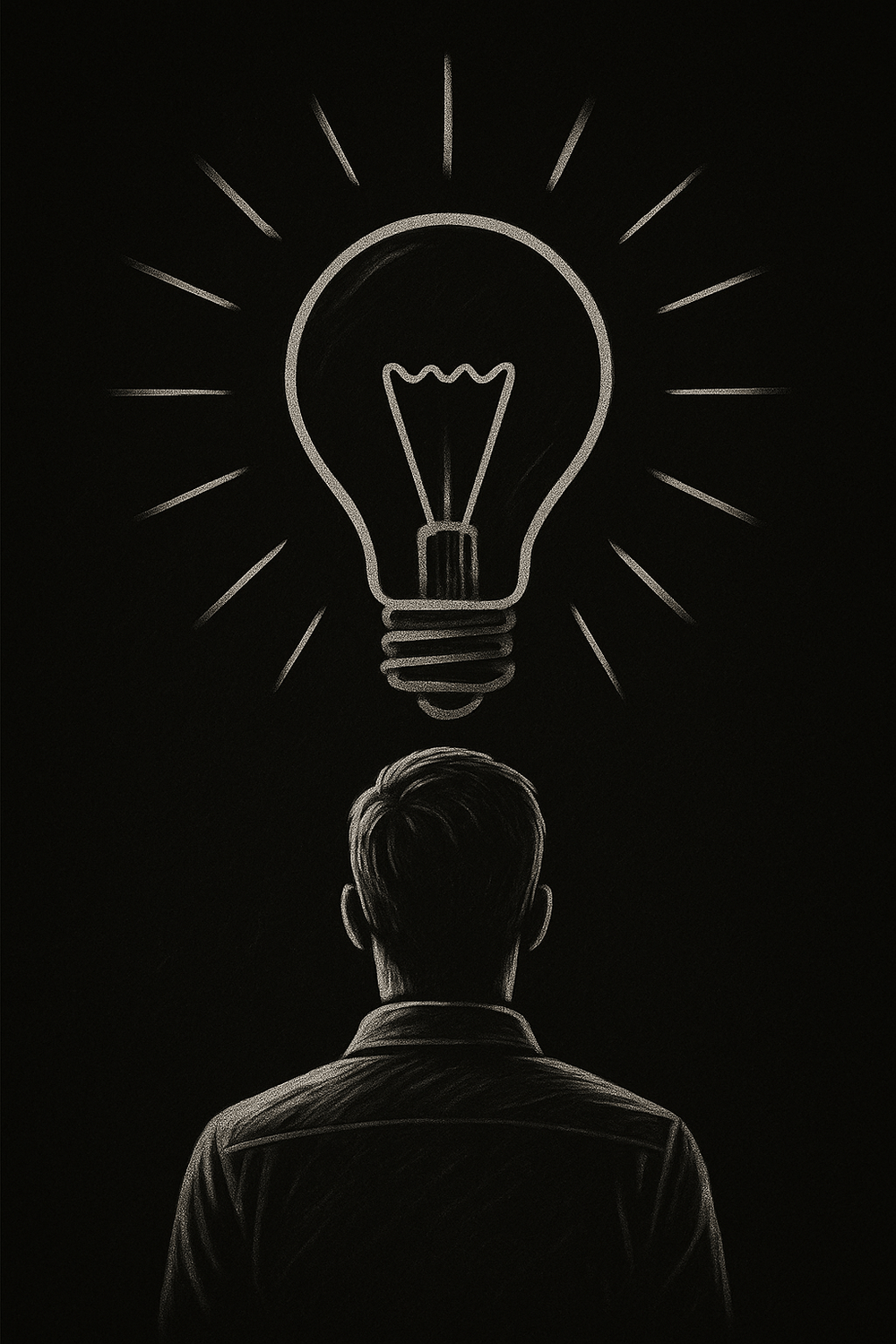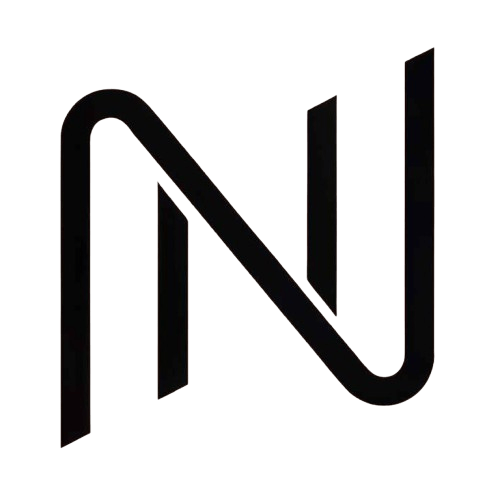Not A Subscriber?
Join a global group of ambitious readers on their quest to understand themselves, life, and business
The real reason smart people get stuck (and what to do instead)
Smart people rarely get stuck because they’re not capable.
They get stuck because they try to control their way to success.
They’re used to getting results by thinking harder, planning better, and minimizing risk. That strategy has served them well for years. In fact, it’s rewarded them, at school, at university, in corporate life.
But eventually… it stops working.
They enter a new level of challenge. A leadership role. A big decision point. A creative pivot. A business transition. And suddenly, the terrain changes.
The same habits that helped them succeed - thinking, perfecting, analyzing - start to backfire.
Instead of leading boldly, they hesitate.
Instead of experimenting, they second-guess themselves.
Instead of taking risks, they seek one more opinion or analysis.
This is when many smart people start failing.
Not because they lack ability.
But because they’re trapped in an outdated mental model.
Why your strengths can become your limits
If you’re intelligent, driven, and analytical, then it’s likely that much of your success has come from your ability to think.
It’s how you solved problems. How you stayed one step ahead. How you avoided mistakes.
But here’s the paradox:
The strategies that got you to where you are today are often the exact ones that block your growth and prevent you from getting to where you want to go in the future.
What once helped you feel confident (your intellect, preparation, controlled execution) can now cause you to overplan, overcontrol, and overwork.
You end up going in circles and getting stuck.
At the core of all this behavior is often something deeper.
Something less obvious and sometimes unconscious.
Something that you might not like to admit: A fear of failure. Specifically, a fear of being exposed or seen as a failure.
Not exposed as incompetent (because you're not), but as imperfect. As someone who could make a wrong move. As someone who doesn’t always have the answer.
So instead of acting, you delay.
Instead of choosing, you analyze.
Instead of trusting yourself, you gather more input.
It feels like a productive and smart use of your time.
But it leads to a familiar loop:
Keep seeking the "right" or "perfect" answer
Drown in complexity
Make more plans
Avoid risk
Feel more stuck
My own version of this
I know this trap well. I spent a decade in high-stakes environments in strategy consulting, working with large clients on critical projects. Failure was never an option.
Being smart and prepared was my edge. Especially as an analyst, associate, and then as a project manager. Delivering on complex project in short deadlines was what I did. And I did it well. Flawless execution.
But as I progressed in my career, I started to take on an expanded role.
As an associate partner my focus shifted from managing 1 project at a time to overseeing multiple projects in parallel. From executing on tasks myself to empowering and coaching others. From project management to stakeholder engagement. From meeting today’s demands to shaping tomorrow's future. From having the answers to asking the right questions.
The temptation was to get into the details of each project and engage my thinking brain to crack one tough problem after the other. But I quickly learned, without some pain, that I couldn't plan or analyse my way to success, especially not when managing 3-4 projects in parallel.
Analysis and planning felt productive. But it wasn't and it was holding me back.
What I was really doing was avoiding vulnerability. Avoiding the discomfort of not knowing everything and avoiding the possibility that a meeting or project might not go exactly as planned.
Eventually, I learned to let go and reset.
I did this by expanding my definition of what it meant to lead, from controlling outcomes to creating conditions for success.
It was no longer about having the perfect answer but about presence, trust, and the courage to act amidst uncertainty.

Where this shows up
You can spot this pattern in many places:
The mid-career leader who’s built a reputation on having answers, and now avoids new challenges where they might look unsure.
The entrepreneur who’s brilliant at strategy but can’t bring themselves to launch until every variable is nailed down.
The high performer who over-prepares for every meeting, because improvising feels scary.
The creative who rewrites the same blog post ten times, waiting for it to be perfect before sharing.
What do they all have in common?
A mindset that says: “If I can just have a little more certainty that this will be a success before starting, then I will be ok.”
But this is impossible. Certainty is an illusion, and clarity comes from action.
Real (self-)leadership, creativity, and impact all require the opposite.
They require you to act without full control.
The shift you need to make
At higher levels of complexity, it’s less about leaning on existing expertise and more about learning and evolving in real time.
This is the hard truth that most smart people have to learn.
You can’t think your way out of a complex challenge.
You have to surrender certainty, take imperfect action and adjust as you go.
This is the inner shift:

This kind of stuckness doesn’t call for more effort.
It calls for a deeper shift in how you relate to uncertainty. It’s an inner rewiring.
You begin to move from certainty to curiosity, letting go of the need to have everything figured out and allowing yourself to explore, ask, and sense what’s unfolding.
You shift from perfection to progress, realizing that trying to get it right the first time keeps you stalled, while imperfect action actually builds clarity.
And you move from control to courage, trading the illusion of total oversight for the real strength of showing up, taking a step, and trusting your ability to respond.
These aren’t just behaviour shifts.
And they even go beyond mindset shifts.
They’re new ways of being that unlock movement in places where thinking has reached its limit.
And this is exactly what makes it so hard.
Because if your worth has always been tied to “getting it right,” then being in the unknown feels threatening and even dangerous.
Launching my Sustainable Peak Performance program
Another moment that changed my relationship with control came during a coaching conversation.
My coach asked a simple question: “What would you do if you knew you couldn't fail?"
As I reflected, I realized I’d been delaying taking the next step in launching a new personal development program I was designing.
I wanted to feel more "ready" before launching. And I wanted to make things look more "impressive" so I looked like I was further along. On my to-do list I had things like "update website", "get 2 more client testimonials", "publish 3 more articles on website", "lock in the first 10 paying clients".
Because if I had that, I believed, I would minimize the risk of failure and I would look more credible and impressive when I launched.
The question helped me see what I was really doing: hiding behind a fear of things not being "perfect" when launching.
Then and there, I decided to move forward. Not with more analysis and planning, but by setting a date for when the first cohort would go live, and working backwards from there.
1 months later, the first cohort for my Sustainable Peak Performance program was locked in.
1 month after that I kicked off the program.
Movement brought clarity and momentum, and what previously felt uncomfortable (launching a new program to the world) suddenly felt like the easiest and most obvious thing in the world.
How to get unstuck
If you recognise a tendency in yourself to try and over-analyse and overplan your way out of complex problems, here are three ways to start shifting:
Let go of needing to have all the answers. Embrace inquiry, openness, and experimentation.
Interrupt the overthinking loop. Notice when you’re seeking “just one more opinion” or endlessly refining a draft. Call it what it is: avoidance.
Try 48-hour micro-experiments. Pick one decision you’re hesitating on and test a small, low-stakes version (e.g. share a rough idea with a trusted person, post a beta version online).
Adopt a beginner’s mindset. Practice saying “I don’t know, but I’m curious to find out.” Be ok with not having all the answers.
Trade perfection for forward momentum. Build a bias for imperfect action.
Use the 80% Rule. If something is 80% ready, ship it. Gather feedback and refine if needed.
Set ‘imperfect action’ goals. Instead of outcome goals, set action goals for the week. E.g. “Publish next newsletter online". By giving yourself a time limit, you'll be forced to take what might feel like imperfect action.
Schedule 90-minute “build sprints.” Pick one idea you’ve been stalling on and make a tangible output in 1 deep work block. Progress creates clarity faster than overthinking.
Let go of micromanaging outcomes. Act with courage, even when you don’t feel fully ready.
Name the fear. Ask yourself: “What am I trying to control, and what am I afraid might happen if I don’t?”
Do the scary thing first. Start your day with one uncomfortable but aligned action (e.g. an ask, a post, a decision).
Practice vulnerability in small doses. Share something honest or unfinished with your audience, team, or peers.
Use ‘worst case clarity.’ Play out the worst-case scenario. Then ask: “Can I handle that?” You probably can.
If this feels uncomfortable, that's good. That means you’re standing on the edge of growth.
Clarity comes through movement.
And confidence comes through action.
So embrace being uncomfortable.
Connect inwards to feel what needs to happen next.
Take the next aligned step.
And then trust in yourself that you'll be able to figure it out along the way.
The path doesn’t appear before you begin.
It reveals itself to those who walk it.

About the author Nicolai Nielsen
I am the bestselling author of 3 books, former McKinsey Academy Associate Partner, and the founder of Potential Academy.
My mission is to raise global consciousness through education and inspiration.




